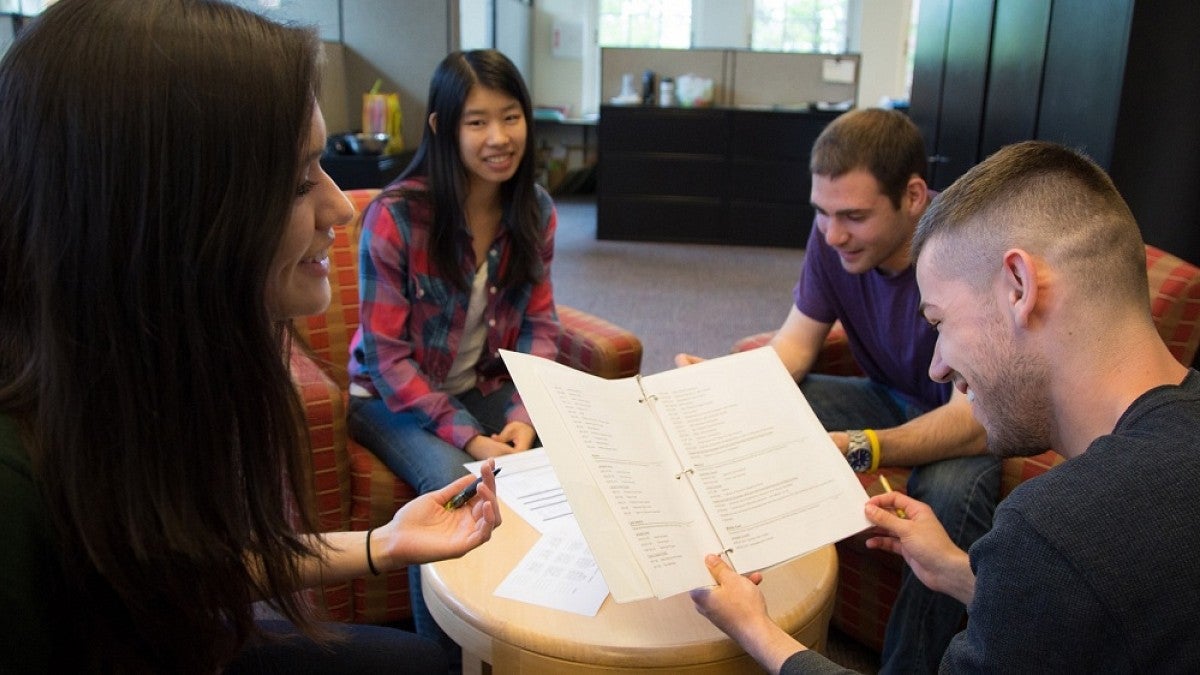The University of Oregon is announcing its latest investment to support student success as part of the Oregon Commitment, an initiative first announced by President Michael Schill in fall 2015.
The UO will hire an additional 23 advisers in the coming months as part of the comprehensive effort to strengthen student advising and career counseling, enhance student success, and improve on-time graduation.
“By investing in many more advisers, creating a web of support and connecting students to opportunities, we will help them thrive while at the University of Oregon and set them up for successful careers and lives,” Schill said. “This is intrinsically tied to the Oregon Commitment and our promise to students to provide access to a great education, support their on-time graduation and prepare them for the jobs of today and of the future.”
The additional advisers will work in the new Tykeson Hall College and Careers Building, which is under construction near the center of campus and set to open in fall 2019. The opening of Tykeson Hall will launch a new system of advising on campus that integrates academic and career advising and addresses the mission to enhance student success in ways that the UO has never seen before.
“As we re-envision academic and career advising at the UO, we have a tremendous opportunity to transform the ways in which we help our students define and achieve their goals,” said Doneka Scott, associate vice provost for student success, about the start of a novel comprehensive advising model.
In addition to increasing the number of advisers, a component of the new advising model includes grouping students around thematic areas of interest. These areas will assist advisers in understanding the types of careers students are interested in pursuing and how to align their academic paths to accomplish their career goals.
The “On Track. On Time” initiative is another tool students will have as they work to accomplish their goals. Supported by the Division of Undergraduate Studies, the Registrar’s Office and the Office of Information Services, “On Track. On Time” is a comprehensive guide to assist students on their academic path to graduate on the timeline of their schools or colleges, note milestones and serve as a resource to students seeking assistance, academically and otherwise.
“With the “On Track. On Time” initiative, we aim to help our students better navigate the UO, helping them chart their path from matriculation to graduation,” Scott said. “The accompanying website, containing a repository of information and resources — vis-a-vis registration, financial aid, major mapping and degree plans — provides our students the ability to access requisite information in one place.”
In addition to providing more advisers and tools to assist students, the initiative takes a new approach to advising terminology. The term “undeclared” for students who have not chosen a major will be replaced with the more positive and proactive term “exploring.”
“It’s a small change, but it’s in keeping with the overall cultural shift we’re trying to make,” said Ron Bramhall, associate vice provost for academic excellence. “We thought, ‘Let’s stop calling the thousand students every year that are ‘undeclared’ something negative. It’s time to stop referring to them as what they aren’t and to start calling them what they are, which is ‘exploring.’”
The term “exploring” also reflects the thematic approach to student pathways to success being put in place through Tykeson Hall.
Additionally, the timeline for when students should declare majors also was revised. Previously, students didn’t need to designate a major until later in their college careers, but as of last fall, students who have not declared a major by the conclusion of their sixth term will need to see an adviser to ensure they are on a path to reach their goals.
“The idea wasn’t to force declaration at a particular time but was to say, ‘You need to have a conversation with someone,’” Bramhall said.
Since Schill first announced the Oregon Commitment almost three years ago, the university has increased the number of PathwayOregon scholarship recipients, hired a dedicated student success leader, increased the number of advisers and invested in predictive software to help identify and help students who are struggling.
—By Laurie Notaro, University Communications


